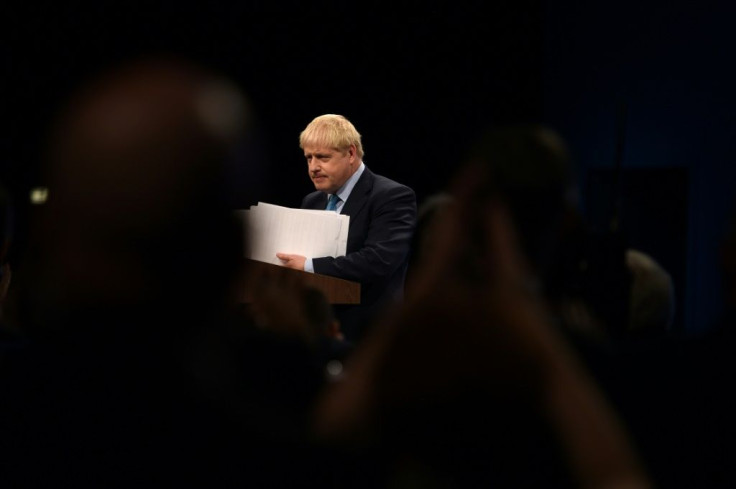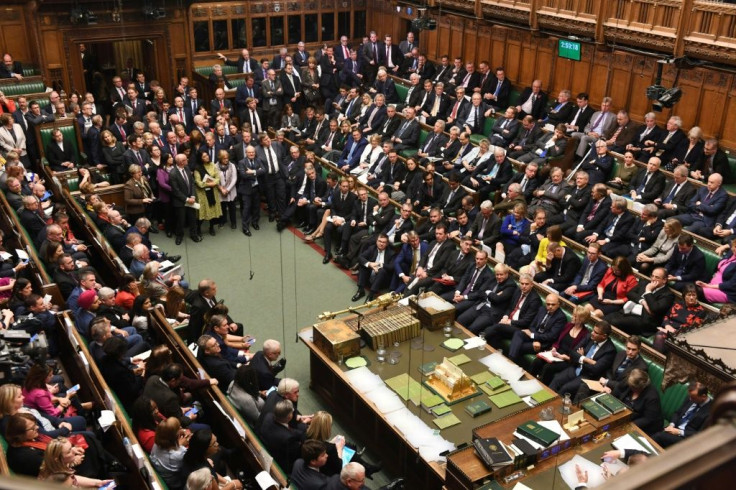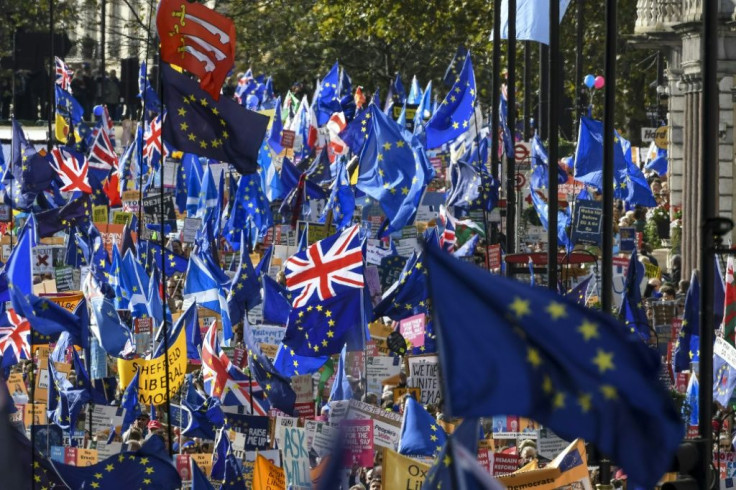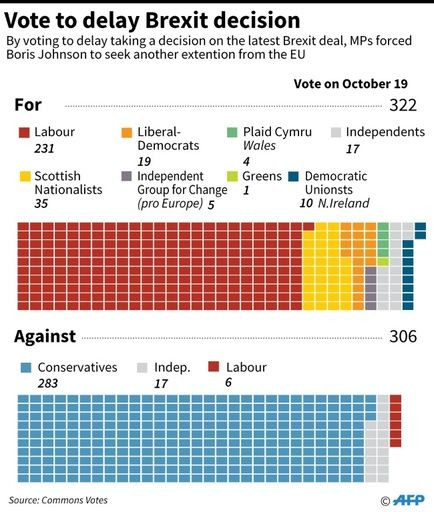Britain's Johnson Plots Another Brexit Showdown

British Prime Minister Boris Johnson brushed aside yet another Brexit setback Monday and sought again to ram through his EU divorce deal in time for next week's deadline.
House of Commons speaker John Bercow shot down Johnson's second attempt Monday to get MPs to sign off on his revised EU withdrawal terms.
Lawmakers decided at their first Saturday session since the 1982 Falklands War to force Johnson to ask Brussels to postpone the October 31 cutoff date by three months.
Bercow called the Conservative leader's bid to get MPs to back his deal on Monday "repetitive and disorderly".
Johnson is desperately trying to secure a break from Brussels that severs many of the island nation's economic relations with Europe after 46 years of EU membership.
His new strategy is to get parliament Tuesday to approve an accompanying package of legislation that needs ratifying for Brexit to take effect.
Johnson will try to get lawmakers to fast-track the hearings so that they end on Thursday -- an ambitious timeline certain to face resistance from the pro-European opposition.

"The public doesn't want any more delays, neither do other European leaders and neither do I," Johnson said Monday.
"Let's get Brexit done on 31 October and move on."
Johnson's foes are now trying to attach amendments that either force him to seek closer EU trade ties or accept a third Brexit delay this year.

'Technical extension'
Britain has been struggling to agree on how to leave the EU ever since narrowly backing Brexit in a 2016 referendum that did little to end old arguments about the country's place in the world.
Johnson built his Brexit strategy on the premise of using the pressure of time to force everyone to stop bickering and agree an exit plan by the end of the month.
The British government sent three letters to Brussels on Saturday night -- including an unsigned one -- to reluctantly seek another delay.
The manoeuvre was designed to minimise the political damage of Johnson going back on his word and seeking an extension ahead of an early general election most expect in the coming months.

But British Brexit minister Stephen Barclay told parliament Monday that European Council President Donald Tusk "has accepted the request as valid and indicated he is considering it and consulting with member states".
European officials have the option of extending the deadline for just a few weeks or possibly many months to give Britain more time to finally make up its mind.
German Foreign Minister Heiko Maas said he "would not rule out a short technical extension".
A delay might also be needed if the European Parliament -- a legislature that ratifies treaties signed by EU leaders -- gets bogged down with its own Brexit debates.
European Parliament speaker David Sassoli said the chamber "will be the final actor to have its say on the withdrawal agreement" once Britain has ratified the deal, after talks with party leaders on Monday evening.
The European Parliament is due to meet again on Thursday to discuss the progress.
Customs union plot
Success in parliament Tuesday would revive Johnson's chances of getting his October 31 divorce.
But the deck seems stacked against Johnson's minority government.
The main opposition Labour Party is trying to create a cross-party alliance that would back Johnson's deal on the condition that it keeps Britain in a customs union with the EU.
Johnson and his supporters say this would kill the point of Brexit by preventing Britain from striking lucrative trade pacts with powers like China and the United States.
Labour is seeking to create a quick marriage of convenience with Johnson's nominal allies in Northern Ireland's hardline Democratic Unionist Party.
The DUP broke ranks and voted against Johnson's agreement Saturday because it created new trade regulations for goods moving between Northern Ireland and the rest of the UK.
The Brexit-supporting group appeared open to the customs union idea after rejecting another amendment backed by Labour that would put up any eventual deal for a confirmatory referendum.
Hundreds of thousands of people rallied in London on Saturday demanding a second national vote on Brexit that could overturn the results of the 2016 referendum.
© Copyright AFP 2024. All rights reserved.





















